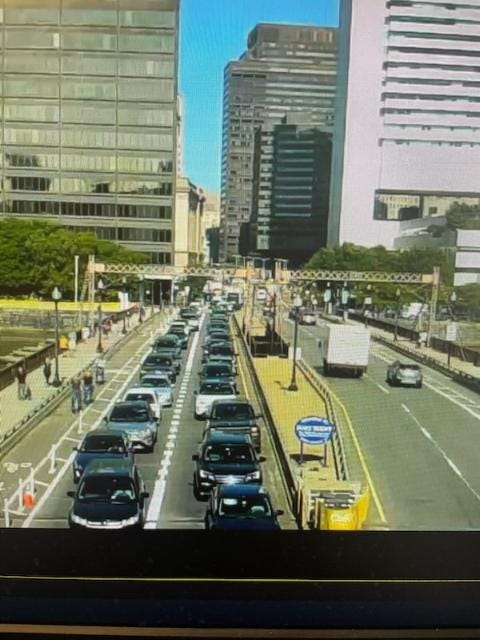State House battle brewing over literacy reform | Globe goes big on weather coverage | South Boston pols blast plans for bike and bus lanes | Hope dwindling for stalled apartment and condo projects | News union pushes back against big tech | Quick hits |
News tips? Story ideas? Email us at sbvanvoorhis@hotmail.com
Wutopian thinking: South Boston the latest neighborhood to rebel against the mayor’s plans to turn major city thoroughfares into havens for cyclists and buses
Boston Mayor Michelle Wu has opened a new front in her fight to force cars off the city’s traffic-clogged streets: South Boston.
But the mayor’s plan to dramatically transform Southie’s streetscape by taking space on streets from cars and giving it to buses and bikes is already in deep trouble, barely a week after it was unveiled.
The Wu administration cancelled a public hearing on the issue that had been slated for last Wednesday, a move that came after the neighborhood’s elected officials effectively called the proposal dead on arrival.
“It’s not that bike and bus lanes shouldn’t be anywhere, but they shouldn’t be everywhere,” said state Sen. Nick Collins at a Zoom meeting on April 4 on the newly proposed plan. “We are making draconian decisions for limited use,” said the South Boston Democrat, noting that bike lanes are little used during the late fall and winter months.
Former City Council President Ed Flynn noted he had been pushing for years to make the neighborhood’s streets safer for pedestrians.
But what he had in mind were speed bumps and raised crosswalks, not the sweeping reconfiguration of South Boston’s main thoroughfares.
Roughly half the roadway on key arteries like West Broadway would be replaced by bus and bike lanes under the proposal put forth by the Boston Planning & Development Agency.
“What I am hearing tonight is mostly bike lanes, separate concrete bike lanes on West and East Broadway, Old Colony and Dorchester Street, the idea being the road is too wide, so lets just narrow them to slow them down,” Flynn said at the online meeting hosted by the BPDA.
Flynn cited a list of concerns, including the impact of the carve out for bike and bus lanes on small businesses; the ability of police and fire crews to respond to emergencies; and neighborhood residents simply trying to get to work in the morning.
“I am worried about tying up Old Colony and no one being able to get to work,” Flynn said. “I am against this plan.”
Meanwhile, a nearby city pilot program on Summer Street in the Seaport featuring the addition of bus and bike lanes has done little to inspire confidence.
That has to led to traffic pileups by the Boston Convention & Exhibition Center and the Omni hotel, critics say.
“Congestion caused there by this pilot has been obviously impacting the environment and Summer Street,” Collins said.
The pushback in South Boston is just the latest in a series of similar clashes in various neighborhoods, including West Roxbury and the Back Bay, as the Wu administration pushes bike and bus lanes.
There have been similar battles in Cambridge as well, with small business owners worried about the impact of losing parking spaces as bike and bus lanes are installed.
Meanwhile, a spokesperson for the BPDA said there is no timeline yet for when the cancelled public hearing on the South Boston transportation plan might be rescheduled.
“After hearing significant concern and questions about some of the proposals … we decided to step back and consider more comprehensive changes before going back to the community,” a BPDA spokesperson said in statement to Contrarian Boston.
In other words, the Wu administration’s plans to completely remake South Boston’s streetscape is going nowhere fast.
Give literacy a chance: Key backer of reading reform bill remains optimistic about bill’s chances
The state where public education was born more than three centuries ago has a reading problem.
That’s right. Less than half of third graders passed the English language portion of the MCAS exams last year, according to the Boston Globe.
And one culprit has been the continued persistence of teaching methods that stress a “whole language” approach that encourages students to guess at the meaning of words through the use of picture books.
In response, a coalition of ed reform advocates is battling to establish statewide teaching standards around reading education that would draw upon the latest research on the most effective methods.
Keep reading with a 7-day free trial
Subscribe to Contrarian Boston to keep reading this post and get 7 days of free access to the full post archives.





